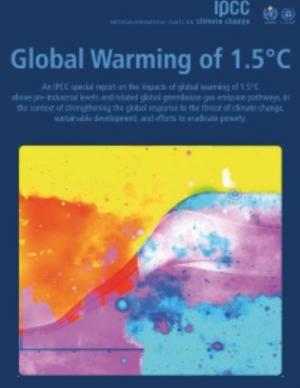Access a range of climate-related reports issued by government agencies and scientific organizations. Browse the reports listed below, or filter by scope, content, or focus in the boxes above. To expand your results, click the Clear Filters link.
The Working Group II contribution to the IPCC Sixth Assessment Report assesses the impacts of climate change, looking at ecosystems, biodiversity, and human communities at global and regional levels. It also reviews vulnerabilities and the capacities and limits of the natural world and human societies to adapt to climate change.
This is the FY22 edition of the U.S. Gllobal Change Research Program's annual report to Congress mandated by the the Global Change Research Act. The report provides an overview of the Program’s progress in delivering on its strategic goals as well as a summary of agency expenditures under USGCRP’s budget crosscut.
This guidance aims to enhance the capacity of health care facilities to protect and improve the health of their target communities in an unstable and changing climate. The document also intends to empower health care facilities to be environmentally sustainable, by optimizing the use of their resources and minimizing the release of waste into the environment. Climate resilient and environmentally sustainable health care facilities contribute to high quality of care and accessibility of services, and by helping reduce facility costs also ensure better affordability.
This document aims to:
- Guide professionals working in health care settings to understand and effectively prepare for the additional health risks posed by climate change.
- Monitor, anticipate, manage and adapt to the health risks associated with climate change.
- Guide health care facility officials to work with health determining sectors (including water and sanitation, energy, transportation, food, urban planning, environment) to prepare for additional health risks posed by climate change through a resilience approach, and to promote environmentally sustainable practices in providing these services.
- Provide tools to assist health care facility officials assess their resilience to climate change threats, and their environmental sustainability based upon the appropriate use of resources (in particular water and energy and sustainable procurement), and release of hazards (biological, chemical, radiological), to their surrounding environment.
- Promote actions to ensure that health care facilities are constantly and increasingly strengthened and continue to be efficient and responsive to improve health and contribute to reducing inequities and vulnerability within their local settings.
Heatwaves are deadly and their impacts are on the rise globally due to climate change. People living in urban areas are amongst the hardest hit when a heatwave occurs because these are hotter than the surrounding countryside. It is crucial that cities incorporate heat-reduction tactics such as green spaces into their plans for growth or retrofit them in built areas; this emergency can only be avoided if city institutions, community groups, and planners contribute to reducing heat risk now and in the future. This guide is intended to help city staff take the first steps to understanding the heat risks they face, develop an early warning system, work with partners to consolidate heat action plans, and adapt urban planning practices.
This special report from the Intergovernmental Panel on Climate change describes the impacts of global warming of 1.5 °C above pre-industrial levels. The report also describes potential global greenhouse gas emission pathways, in the context of strengthening the global response to the threat of climate change, sustainable development, and efforts to eradicate poverty.








